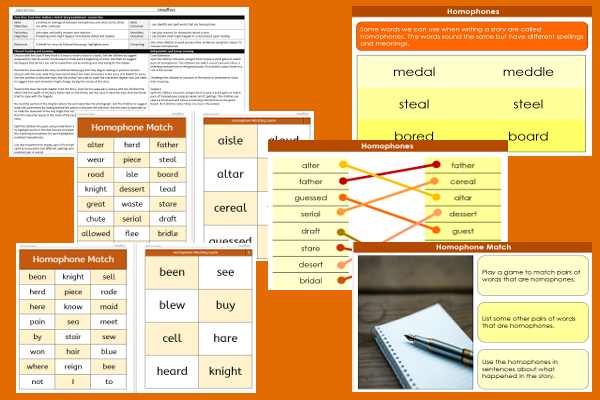Lesson One – Homophone Match

This English teaching pack for Key Stage Two gets the children to identify and match pairs of homophones and illustrate their different meanings to use when composing sentences related to a narrative adventure story.
The class can select and present their viewpoints about the structure of the story that has been used to excite and interest the reader in the narrative sequence of events.
Download this teaching pack including a lesson plan, classroom activities and an interactive presentation to identify and match pairs of homophones and illustrate their different meanings to use when composing sentences related to a narrative adventure story
Activities in this teaching pack include differentiated worksheets to play games to identify and match pairs of homophones that sound the same but have different spellings and meanings and model how to use the homophones to compose sentences related to a story.
The interactive presentation gets the children to explore matching pairs of homophones and illustrate their different meanings in sentences related to a narrative story.
This lesson is part of an English scheme of work to get the children to identify and record ways of enriching a narrative story using descriptive vocabulary in expanded noun phrases. There are teaching activities for shared learning, differentiated worksheets to support independent learning and interactive presentations to introduce concepts and key skills.
-

Maths Arithmetic Assessment
Assess abilities in solving arithmetic number problems for addition, subtraction, multiplication and division when working with informal and formal written calculations
-

Environment
Identify and describe some of the special landscapes and locations that can be found in the world and reflect on how they can be protected and preserved for the future
-

Silent Letter Words
Explore and illustrate the meanings and spellings of some different words with silent letters when using them in a range of topics and scenarios
-

Complaint Letters
Explain and model how to format and structure writing when composing letters of complaint about different issues and scenarios
